Enthusiasts love to modify their vehicles to make more power. Lists of top-10 mods often include turbocharging, supercharging, nitrous, performance exhaust, upgraded intake, engine tuning and more. But they rarely mention upgrading your motor oil to protect your engine from all that additional power.
Let’s discuss the risks of boosting performance and take a closer look at how two of the best premium motor oils perform: AMSOIL Signature Series and Mobil 1.
Horsepower on a sheet of paper
Your engine – and all the time, money, and effort you’ve poured into it – rely on the protection of an oil film that’s thinner than a sheet of paper. Adding horsepower increases engine stress, which places even more stress on motor oil.
Many enthusiasts upgrade the crank, pistons, cam and bearings as part of their build, to better handle the additional pressure. Yet, they often overlook the necessity of upgrading the motor oil to support and protect all this additional expensive equipment.
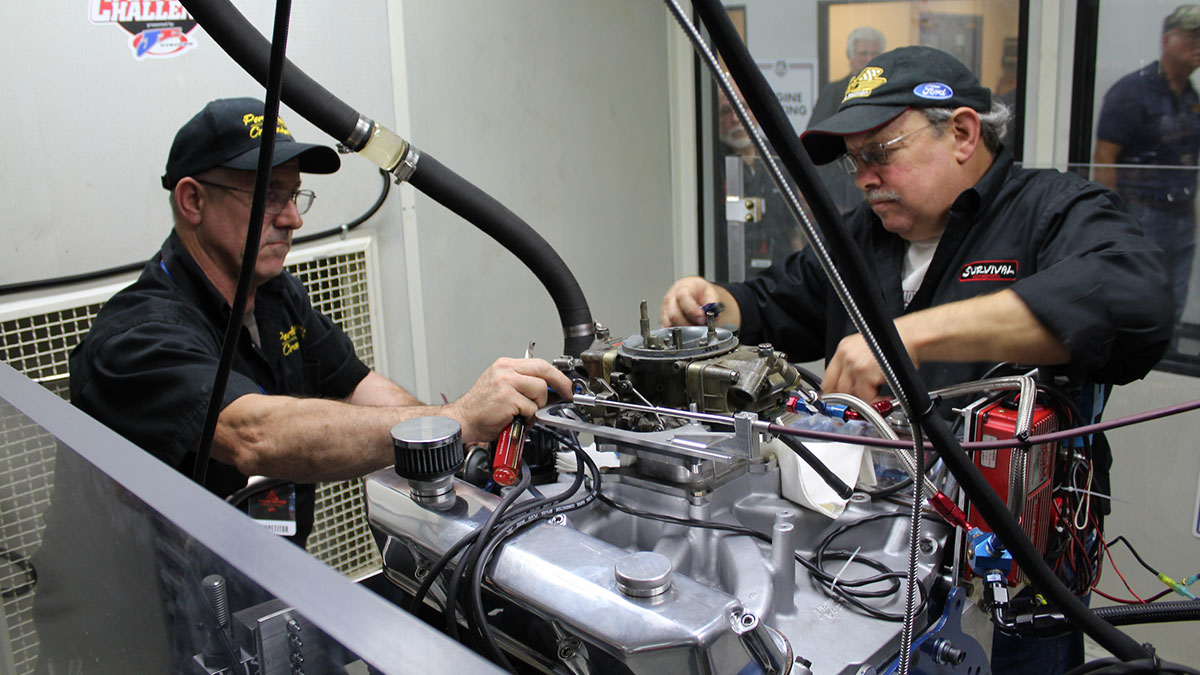
The shear importance of oil
Viscosity is the most important property of oil, as it indicates the oil’s ability to flow. Engine upgrades can increase mechanical shearing forces, which result in viscosity loss. Shear occurs when one layer of oil moves in the opposite direction of another layer of the same oil. A notable example occurs between the piston and cylinder wall. These two oil films move in opposite directions under intense heat and pressure. This is why high-horsepower, high-rpm engines create increased risk of viscosity loss due to shear.
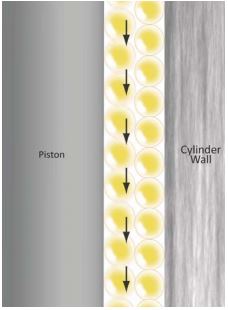
Shear tears apart the molecules of the oil’s additives, which are meant to expand the viscosity range of the base oil. The application and type of base oil determine the type and amount of viscosity additives required. Some viscosity improvers resist shear better than others. And some synthetic oils don’t need viscosity improvers at all due to their inherent ability to withstand shear.
When oil loses viscosity due to shear, it can fail to provide wear protection between moving parts. Think of the force transferred through the piston, rod and crank to the thin oil film protecting the bearing. There’s not much room for error.
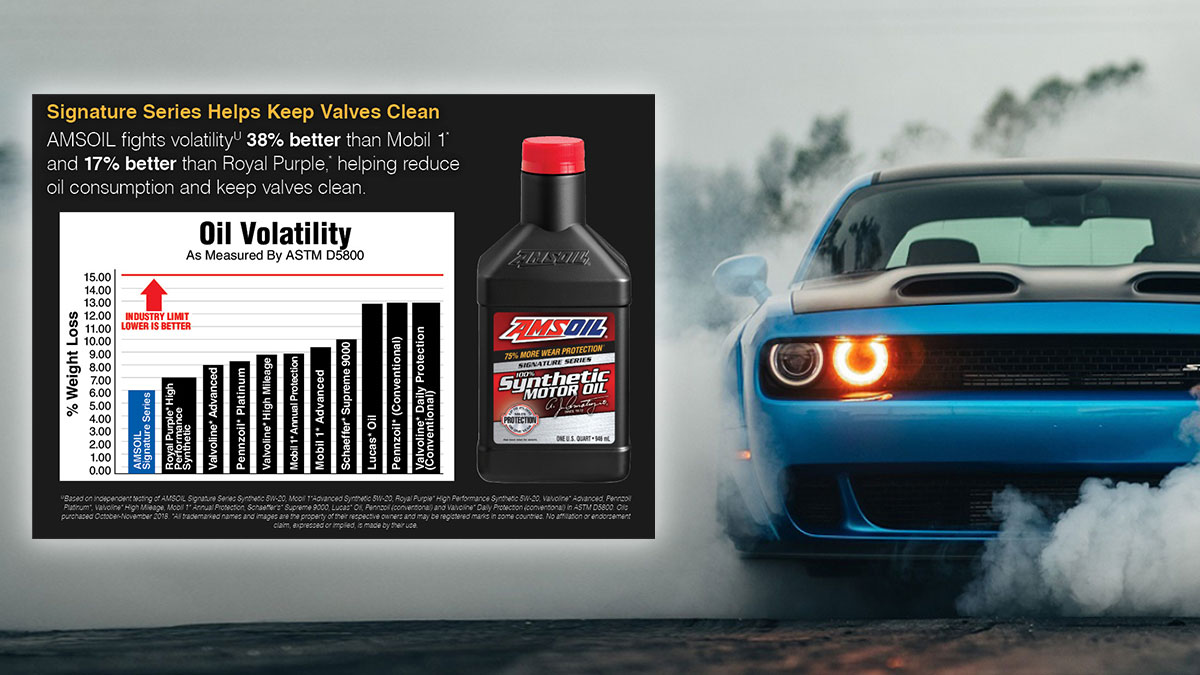

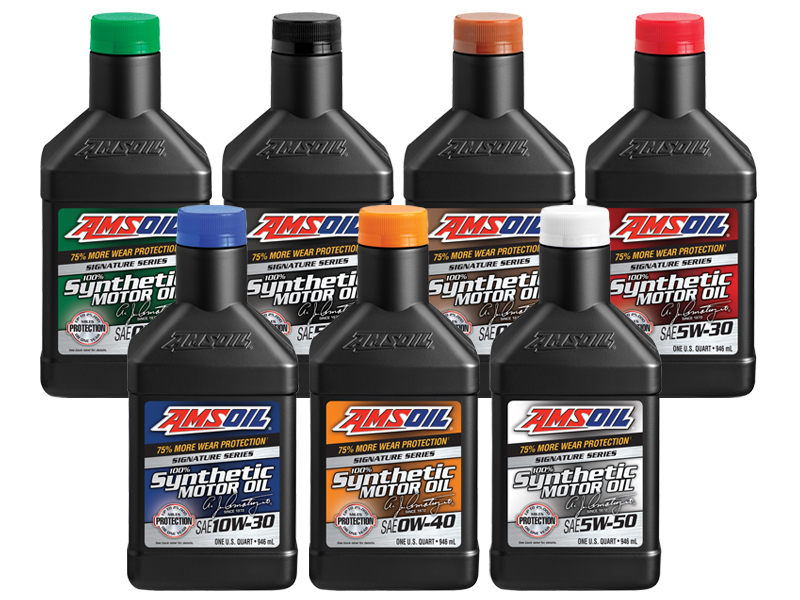

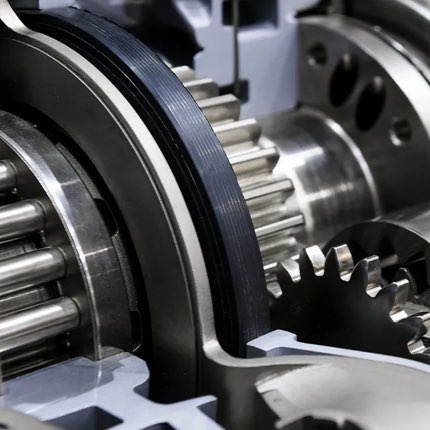
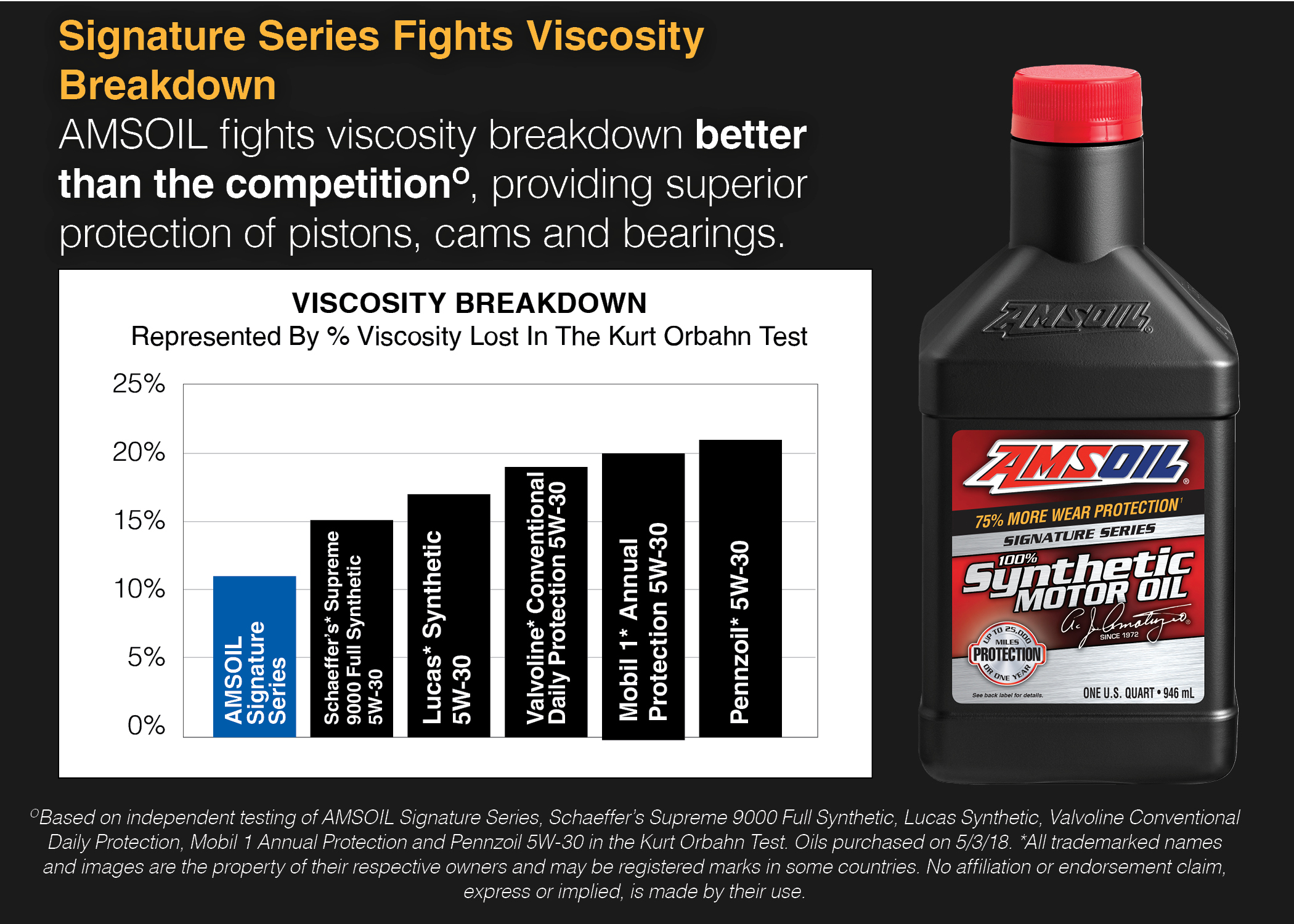
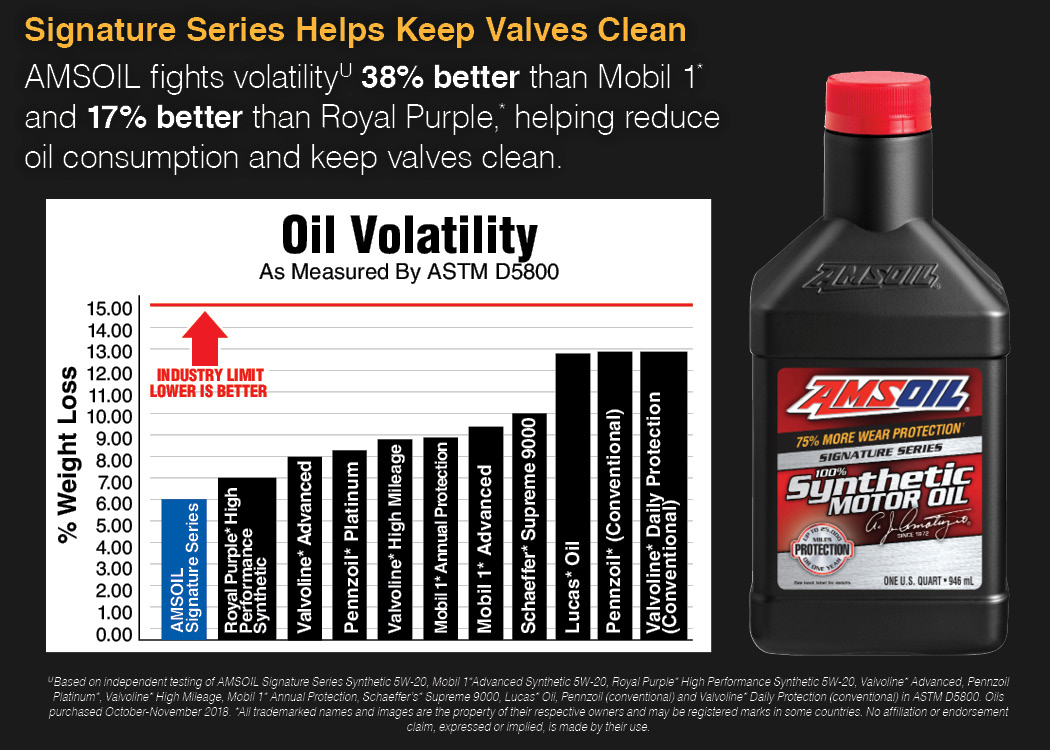
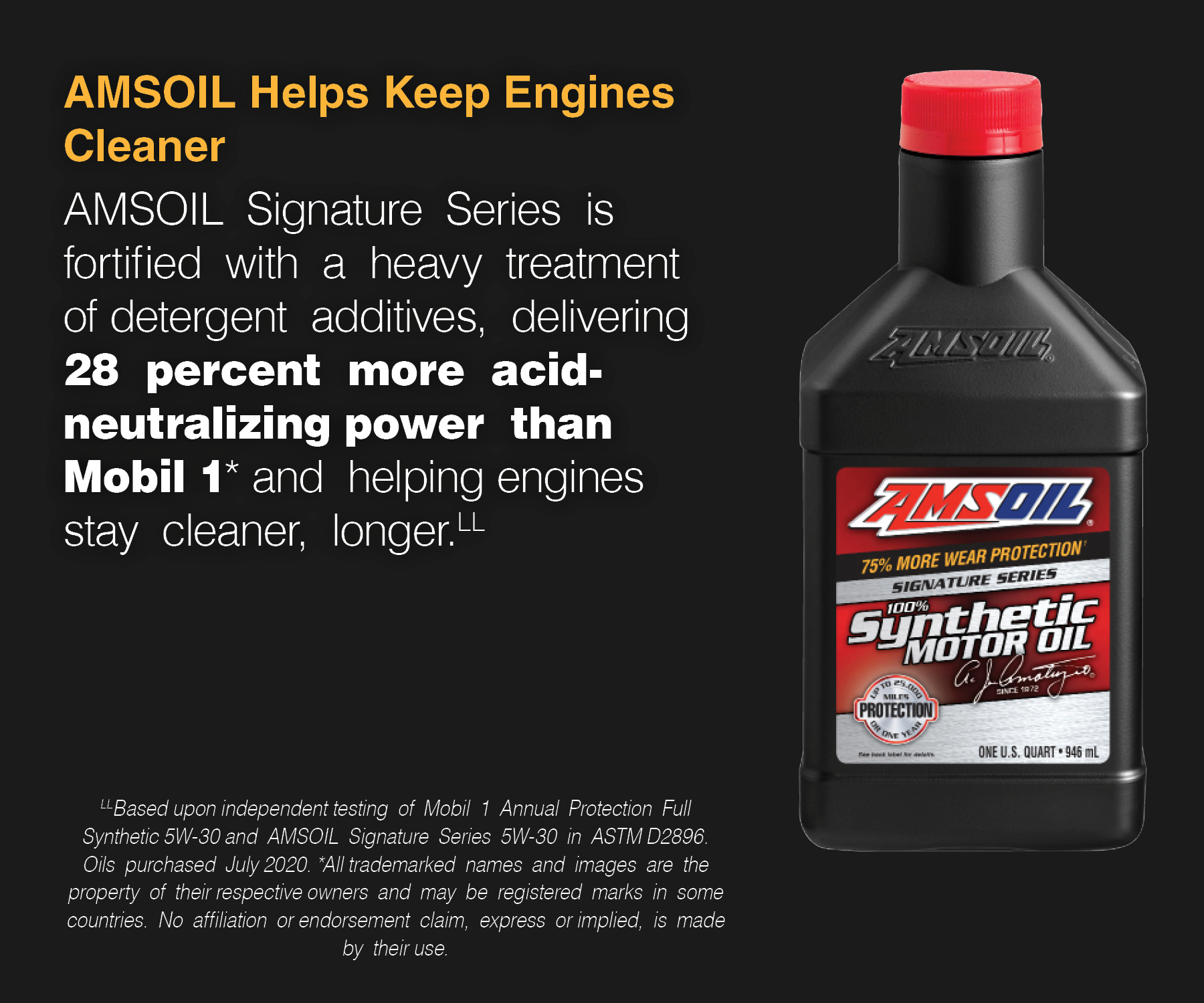
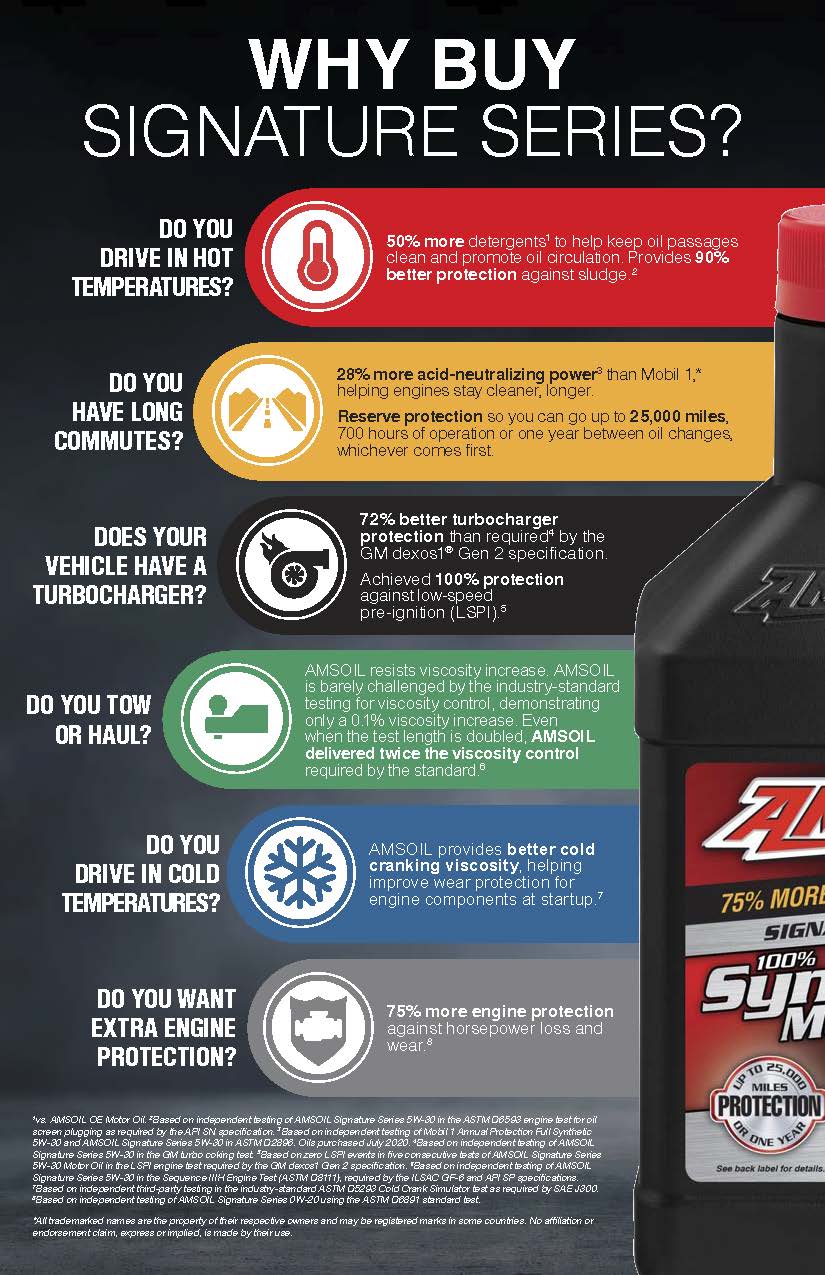
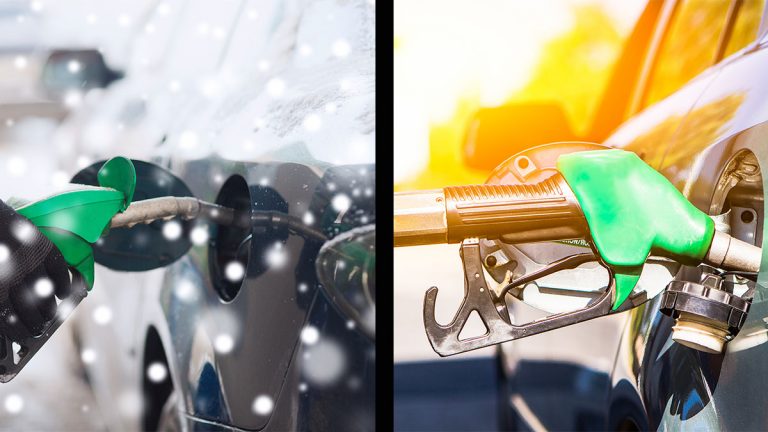
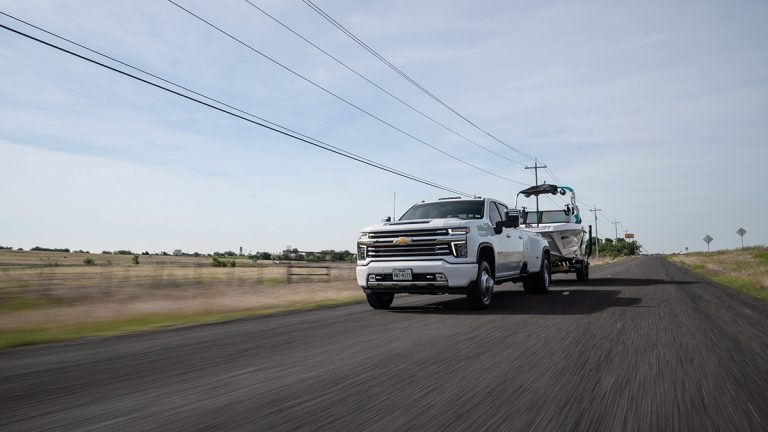


In the viscosity loss test above,what test was performed and in what engines?
Hi Joe,
The graph depicts results in the Kurt Orbahn Test (ASTM D6278). It was performed in an independent, third-party lab. It’s a bench test, not an engine test.
Thanks,
John
The results of the Kurt Orbahn Test are merely a theoretical indicator of the viscosity loss due to shear at the injector nozzle, since it is a bench test that does not involve an actual engine.
Hi Nightflight,
The industry recognizes bench tests, including the Kurt Orbahn Test, as useful tools for evaluating motor oil performance because they remove certain variables and allow evaluation of specific oil characteristics. Bench tests also allow formulators to screen oils before investing the great deal of resources needed to subject them to rigorous field tests. That’s why we, and just about every other oil company, use them to evaluate motor oils. That being said, we also rely on field tests to determine oil performance, and you can read about some of them here: http://www.amsoil.com/performancetests.aspx.
Thanks,
John
So, we all assume that Mobil 1 Syn (regular) performed better than Amsoil in this test. If Amsoil had outperformed it, I’m sure it would be on the chart…
Hi Steve,
One of our criteria for creating comparisons is to ensure we include representative brands within each motor oil category. With that in mind, we chose Mobil 1 Annual Protection because the manufacturer positions it as “the ultimate full synthetic motor oil.” That being the case, we did not test Mobil 1 Synthetic Motor Oil.
Thanks,
John
AMSOIL won’t state if it’s PAO, won’t submit to real world based testing in applications that matter to the consumer. I’m not going to buy a case of AMSOIL and run it through tests on a bench. I want to see the wear that actually occurs from two engines using AMSOIL and Mobil 1 before I can believe these claims. If your claims are true, this would be evident from tests such as these and you would pick up a much larger customer base in demonstrating this. Why does AMSOIL seem to retreat if their product is superior?
Hi Mark,
Thank you for your consideration of AMSOIL and your questions. Like the rest of the industry, AMSOIL formulations are proprietary. Having said that, we use a robust slate of synthetic base oils, which includes PAOs. As you may already know, base oils are only one part of the equation. The type, mix and amount of additives has a profound affect on that oil’s ability to protect against wear, sludge and corrosion. Our additive package composition is unique to AMSOIL and delivers protection that goes far beyond industry standards and leading brands. You make a great point about real-world engine testing. For most serious enthusiasts, professional engine builders are the gold standard for engine testing. AMSOIL has earned the trust of top engine builders like Barry Robotnick, Daniel Boshears and Brett Bowers.
Thanks,
John
Why valvoline conventional and not synthetic ?
Hi Daniel,
We selected a cross-section of oils to represent the choices confronting customers when they buy oil. For that reason, we selected synthetics and conventional oils against which to compare.
Thanks,
John
I’ve been using AMSOIL Signature Series 5w30 engine, AMSOIl ATF Transmission, AMSOIL gear Differential in my 2006 supercharged mustang (675hp) with great results… The issue I have is the AMSOIL filter that is 98.7% efficient vs MOBIL 1 @ 99% given the price.. Actually STP top filter @ $8.00 is also 99% efficient… So I might change filters, but will stay with AMSOIL oils….
Hi Aksel,
Thanks for using AMSOIL products; we’re happy to hear about your positive results.
As for our filters, after recent testing, we’ve upped our efficiency claim to 99 percent at 20 microns. When comparing filter performance, make sure you note the percentage efficiency at the given micron size. While competitive filters also claim 99 percent efficiency, they may do so at 30 or 40 microns.
Thanks,
John
Amsoil filters are light-years ahead of over the counter filters buddy they are made in Europe by the number one filter maker in the world you can stamp whatever percentage factor you want on a filter but when you actually pull the micron rating and lifespan of the filter that is specifically made for use with amsoil synthetic your messing up if you change… The level of protection you get using amsoil is off the charts have a 00 f350 with 596k original 7.3 engine chipped and maxed out way more torque and power than the mustang under load and if it’s moving it’s loaded work truck hotshot and farm truck… In diesel shop at local college they take my truck apart and put back together twice a year completely have done since new free service parts not included for kids to learn… In the most recent break apart had them mic every wear point to factory spec no bs happy to mail you the information photos ect no buildup no visible wear and absolutely no oil use engine is all original and per instructor of the international training school expert is the cleanest best looking engine he’s ever seen with that kinda miles said it was comparable to one with 50-75k… Amsoil has open door clear third party and in house testing and is extremely well documented try research on those other over the counter filters and see where they get those hard numbers from… GMC recommended the very penzoil to keep my warranty on Z71 listed here on this post look at amsoil 293k pushing over 500hp no oil use all original parts besides the mods and chip I did to make the horsepower when bought…
This is in response to a comment made by “Ryan on Sept.12,2019 at 2:46pm”. In his Blog, he states “they(referring to Amsoil filters) are made in Europe by the number one filter maker in the world”. ?????
I have just ordered and received, Amsoil oil filter EA15K37 (for my 2012 Jeep Wrangler Sahara) and printed on the box and on the filter it says “MADE IN CHINA”. One question I have is, where did Ryan get the info that Amsoil filters were made in Europe? The other question I have is why, with all the hype that Amsoil products are made(produced) and packaged in the USA, are they selling oil filters made in CHINA??
Thank you for your time and any response you may have.
Mike J.
Hi Mike,
Most of our filters are made in the U.S. It is true that a handful of our cartridge filters are made in China. But, we are handcuffed. Our U.S. filtration partners cannot make these filters with our proprietary media built to our strict quality standards – their manufacturing equipment is not compatible with our media. In order to offer our filtration technology for these few applications, we have to outsource them to Asian partners. It’s either that or don’t offer filters for those vehicles, or compromise on the quality and performance of our filtration media to make it compatible with U.S. manufacturers’ facilities. We do not compromise on quality or performance.
We are proud to make our products in the USA and provide American jobs. Unfortunately, continual consolidation in today’s global economy means that in a minority of cases, we can’t get what we need domestically. You can rest assured that we will always choose American options first, and you can also be confident that the filters we offer that are manufactured in China are manufactured to our quality standards and deliver the performance you’ve come to expect from an AMSOIL filter.
Thanks,
John
My amsoil oil filter for my 2004 Aveo has always said made in u.s.a.
Hey, if you want a European filter, you can use a Bosch on your Jeep. They exceed oe specs and hold 15grams of dirt. The difference? Don’t know how many grams dirt AMSOIL filter holds, but it looks to be higher flow capable if you look at the holes inside the can. I don’t know the lab results on the AMSOIL filter but know they exceed oe specs and are good filters. So are Bosch and far less expensive. Maybe the AMSOIL guy can say what he thinks.
I was sold on Amsoil about 15 years ago. I had no idea how good it was until I started using it. I’ve pulled the heads off my 175,000 mile Ford Windstar engine and the cylinders had virtually no wear. Lots of independent you tube videos comparing other oils to Amsoil and Amsoil always comes out on top. At a recent Rally, Mobil 1 had their booth set up. I talked to the Representative about Mobil 1 vs Amsoil. He admitted that Amsoil was better than Mobil 1. I use all their products in all my vehicle engines, transmissions, differentials, etc and I know that any lubrication problems will be almost nill. So I thought the best way to be an Ambassador for their products, Is to be an Amsoil Dealer.
Me Too!! Houston, Texas. Richard Lazear
No comments Only MOBILE1
It looks like you do not know (how) to read (and understand) matter.
It seems to me that these tests should be tested in the real driving reality of all driving conditions in different states. Take West Virginia, that has hills, slopes & NOT many flat land surfaces where roads are built on hillsides & mountain terrians., compared to Delaware, over 90% all flat earth roads & you can be in different climates between the 2 states. Any lab testing room for anything, will give a FALSE report on anything, when compared to actual reality STRESS & WEAR & TEAR of an engine, transmission & performances of any engine no matter how many cylinders & HP it has. GAS quality makes a difference also between states in different areas of the country. There is a difference between gas sold in the North East compared to the Mid Atlantic & Mountain areas of the country. So any tests results from any lab does not come close to reality, as the BIG 3 & others always say how much better MPG’s they have, & they use LABS to get those FALSE numbers.
AMSOIL works great in Minnesota where it is -40F at times, quick starts and no issues. Then, I moved to the Wyoming Wind River mountains, AMSOIL products have exceeded my expectations, with currently 310,000 miles on a 1998 Ford explorer.
Let’s stop with the mumble jumble, Mr. Davis! Lab testing is just that, the numbers are the numbers according to the lab testing parameters! So how do you justify your statement that these results are “FALSE” numbers? You’re on a rant that holds no ground! You have the right to produce your own lab testing numbers with all the extra parameters you choose to add and post the results wherever, but to just come in and blurt out your nonsense mumble jumble is just plain bull-crap to put it nicely! We hear enough propaganda bull-crap everyday from the liberal media, we sure as heck don’t need it here! I am an avid user of AMSOIL products for 15 years with impeccable results in every application and I have no invested interest or relationship of any type with AMSOIL.
AMSOIL does not offer their best or second best oil for my 2019 Toyota RAV4. And I have previously asked about how AMSOIL OE compares to Mobil1 synthetic in the 0W16 viscosity, but AMSOIL does not seem to want to respond to my inquiries. Am I to assume that AMSOIL does not want to show a comparison of the OE oil to Mobil1. I really want to put the best oil into this vehicle, but if I can’t obtain any relevant information from AMSOIL I will go back to Mobil1 and just change the oil more frequently with the money saved by shopping the sales on Mobil1. Please respond and let me know if there is a good reason to continue to buy AMSOIL OE.
Hi Lynn,
As I type this, the market for 0W-16 viscosity oils doesn’t justify us providing that viscosity in our Signature Series or XL Synthetic Motor Oil lines. However, if demand eventually justifies, we’ll certainly rethink our position. Given that more OEMs are requiring lighter-viscosity oils each year, the demand for 0W-16 will only increase, meaning it’s a good possibility we’ll offer those oils in 0W-16 at some point.
We don’t test OE against Mobil 1 because Signature Series is our top-tier oil, and we want to compare our top oil to Mobil’s top oil to ensure an apples-to-apples comparison.
I think there are several reasons to continue to use OE Synthetic Motor Oil. It provides excellent wear protection. In fact, it provides 47% better protection than GM’s dexos1 Gen 2 specification, which you can see here. It also provides 100% protection against low-speed pre-ignition, a problem in some modern turbocharged engines that can wreck the engine. That’s based on zero LSPI events in five consecutive tests of AMSOIL OE 5W-30 Motor Oil in the LSPI engine test required by the GM dexos1 Gen 2 specification. It also provides excellent engine cleanliness and all-season performance.
On top of that, you can become an AMSOIL Preferred Customer and save up to 25% off retail. You can also get fast, free shipping to your door, order easily online and receive other perks as an AMSOIL P.C., like periodic promotions and P.C. points redeemable on future purchases.
So, I think there are plenty of reasons to stick with OE.
Thanks,
John
Thanks for the post. I do believe that you should test the same 5-10 oils across all tests for consistency, and don’t include non-synthetic oils. Also, with the TBN test, you did not include their TBN’s, any reason for this?. Lastly, is it not possible to have a lower TBN that is less susceptible to acidity than an oil with a higher TBN? What I am trying to say is, if oil A has a TBN of 9 but can withstand more acidity and the TBN will lower more slowly than oil B with a TBN of 11? Is this not also possible?
Thanks again for the interesting blogs.
Hi Michael,
Thank you for the suggestion. We chose a mixture of synthetic and conventional oils for these tests to reflect the wide variety of choices available to motorists. While we do test a wider variety of products from time to time, we typically focus on some of the more popular brands that customers frequently compare us to, so not all of our tests include the same competitors. Each claim was developed individually and not intended to be part of a series.
We do have another TBN test that shows more than just AMSOIL and Mobil 1, but we used the test comparing the two oils specifically in this blog post since that is the scope of the post.
It is not possible for a product with a lower TBN to neutralize more acid than a higher-TBN product in the industry standard test.
Thanks for reading,
John
AMSOIL is no doubt a good oil, but some of their marketing needs to be taken with a grain of salt. Noack not NOACK, needs to be averaged. For example, I’ve seen other 3rd party tests test AMSOIL ASM 0w20 and the Noack showed 9.5% (ASTM 5800) where as Mobil 1 AP showed 8.9%. I have no idea how AMSOIL uses their data.
Starting TBN does not tell the entire story. TBN retention is most important. I’ve seen oils with high starting TBNs crash early while lower starting TBN oils maintain their TBN longer.
Mobil 1 Extended and Annual are both fully licenses products that meet dexos 1 Gen 2 and have the correct sulfated ash levels. AMSOIL Signature Series does not meet the sulfated ash level requirements for dexos 1 Gen 2.
AMSOIL is correct for stating that the final performance of the product matters. It seems they finally caught up with Mobil’s reasoning on this topic. Years ago AMSOIL used to display “Genuine PAO” on their boxes. Not anymore. And that is ok. AMSOIL is likely a blend of PAO, III and V base oils.
I’m curious,
Why do you do a test of D6278 (Kurt Orbahn test) and not include Castrol which states on its PDS here https://msdspds.castrol.com/bpglis/FusionPDS.nsf/Files/FFC5668920444F3680257F4F003FE874/$File/BPXE-A7D4BG.pdf that it is 3x more resilient than Mobil 1, so it would be at a guess at 7% which is better than your Amsoil Signature series. Then when I check the Royal Purple HPS PDS here it state 1.92% for the same test, so using Castrols logic is the Royal Purple 3x better than it and 5x better than AMSOIL???
Then we move on to the D5800 test which is compared against Royal Purple API licensed products, all good but is there a hint of misdirection by you as you call it Royal Purple High Performance Synthetic hinting that it is the HPS range but is in actual fact the lesser quality API licensed product.
Hi Susan,
It’s impractical to test all of the dozens of oils available to motorists, so we seek to test a representative sample of conventional, synthetic-blend and synthetic oils in our tests to ensure most people can compare our products to their current product.
As stated in the fine print of the ASTM D5800 test, we tested Royal Purple High Performance Motor Oil, which is a synthetic product. We presented the product on our test the same way Royal Purple presents it on its product label; there’s no intent to confuse it with another Royal Purple motor oil.
Thanks,
John
PDS here https://www.royalpurple.com/wp-content/uploads/2019/01/RP-PDS-HPS-2019-1.pdf
Maybe you should check this out before posing Royal Purple (a good oil no doubt) against the perfect oil to date that has no real competition (AMSOIL)? Or do you simply don’t love your vehicle enough to get over the fact purple is you favorite color? Just saying, there would really be no other reason to choose RP as the better oil, right?
I’m sure it’s a decent oil. Is it overly hyped ? Absolutely. I’m sure the majors are just as good, or even “better” than AMSOIL. It gives folks a warm fuzzy feeling and a mistaken sense of superiority to “know” they have the best in their crankcase.
If you had one sourced fact, I might consider what you said as factual, but it’s not. It just isn’t. You shouldn’t even be allowed to post if you can’t cite accurate industry standard tests. I run mobil-1 in most vehicles. Anything that operates under racing conditions, I run AMSOIL. Why? Oil shear. It’s that simple.
What about high mileage oil for cars over 85,000 miles and 15 years old. I realize that if you live in the colder areas of the country it could be worse than living in the deep south with temps at 115F. Circulation of liquids is key to wear and tear. Here in Connecticut with temps at 5 degrees above, the engine warms up; however, the transmission tends to shift a little hard for the first five or even ten minutes and that’s with having the car in the garage at 42 degrees. There are so many ideas to what the meaning of warming up the engine is. Yes, you can warm up the the fuel system but, what the oil in the crankcase that is so important. Your engine is warmed up when you can feel the heat coming out of your car heater at maybe 120 degrees or so.
It would not let me post a link with my last comment but will in this one.
https://youtu.be/TWuKvnCq1js
Wow! This is excellent content available on the web. How superbly you have analyzed the AMSOIL Vs. Mobil 1 review.
Here you can add benefits of AMSOIL and Mobil 1, giving the audience more clarity while buying any of them.
I like to add the benefits of AMSOIL and Mobil 1 here:
1. Better performance at high temperature: They perform better at high temperature than any other oil in the market.
2. Better mileage: They will improve your mileage drastically.
3. Oil change interval: The most significant advantage of having those oils is you can change your car’s engine oil only once a year.